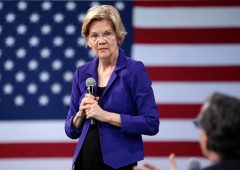UK Plans to Regulate Advanced AI Models
18.07.2024 11:00 1 min. read Alexander Stefanov
The UK's new government has outlined plans to regulate advanced AI models, marking a departure from previous policies as highlighted in King Charles' recent legislative agenda speech encompassing over 35 bills.
While specific laws for AI have yet to be proposed, the government underscores the necessity of regulating developers of high-capacity AI systems.
Key legislative priorities include housing and cybersecurity, with a significant focus on AI regulation. Nathan Benaich from Air Street Capital noted industry relief at the government’s careful approach, avoiding hasty regulations on cutting-edge AI.
Under former Prime Minister Rishi Sunak, the UK positioned itself as a leader in AI safety, hosting a major summit and establishing the AI Safety Institute. Sunak’s administration decentralized AI oversight among various regulators, whereas Starmer’s government plans new AI legislation cautiously to preserve the UK’s competitive advantage.
Opinions on AI regulation vary widely. Gaia Marcus from the Ada Lovelace Institute urges accelerated legislation, citing AI’s rapid integration into everyday life and the economy, emphasizing the need for balanced consideration of AI’s benefits and risks.
The EU’s centralized approach contrasts with the UK’s sector-specific strategy in AI regulation. Nathan Benaich warns against hasty amendments to existing rules that could undermine the UK’s global leadership in AI. Some experts advocate swift legislation due to the rapid deployment of AI technologies, highlighting the urgency for effective regulation across diverse sectors.
-
1
Trump Imposes 50% Tariff on Brazil: Political Tensions and Censorship at the Center
10.07.2025 7:00 2 min. read -
2
Key Crypto Events to Watch in the Next Months
20.07.2025 22:00 2 min. read -
3
USA Imposes Tariffs on Multiple Countries: How the Crypto Market Could React
08.07.2025 8:30 2 min. read -
4
UAE Regulators Dismiss Toncoin Residency Rumors
07.07.2025 11:12 2 min. read -
5
Ripple Selects BNY Mellon as Custodian for RLUSD Stablecoin Reserves
09.07.2025 15:28 2 min. read
Two Upcoming Decisions Could Shake Crypto Markets This Week
The final days of July could bring critical developments that reshape investor sentiment and influence the next leg of the crypto market’s trend.
Winklevoss Slams JPMorgan for Blocking Gemini’s Banking Access
Tyler Winklevoss, co-founder of crypto exchange Gemini, has accused JPMorgan of retaliating against the platform by freezing its effort to restore banking services.
Robert Kiyosaki Warns: ETFs Aren’t The Real Thing
Renowned author and financial educator Robert Kiyosaki has issued a word of caution to everyday investors relying too heavily on exchange-traded funds (ETFs).
Bitwise CIO: The Four-Year Crypto Cycle is Breaking Down
The classic four-year crypto market cycle—long driven by Bitcoin halvings and boom-bust investor behavior—is losing relevance, according to Bitwise CIO Matt Hougan.
-
1
Trump Imposes 50% Tariff on Brazil: Political Tensions and Censorship at the Center
10.07.2025 7:00 2 min. read -
2
Key Crypto Events to Watch in the Next Months
20.07.2025 22:00 2 min. read -
3
USA Imposes Tariffs on Multiple Countries: How the Crypto Market Could React
08.07.2025 8:30 2 min. read -
4
UAE Regulators Dismiss Toncoin Residency Rumors
07.07.2025 11:12 2 min. read -
5
Ripple Selects BNY Mellon as Custodian for RLUSD Stablecoin Reserves
09.07.2025 15:28 2 min. read


